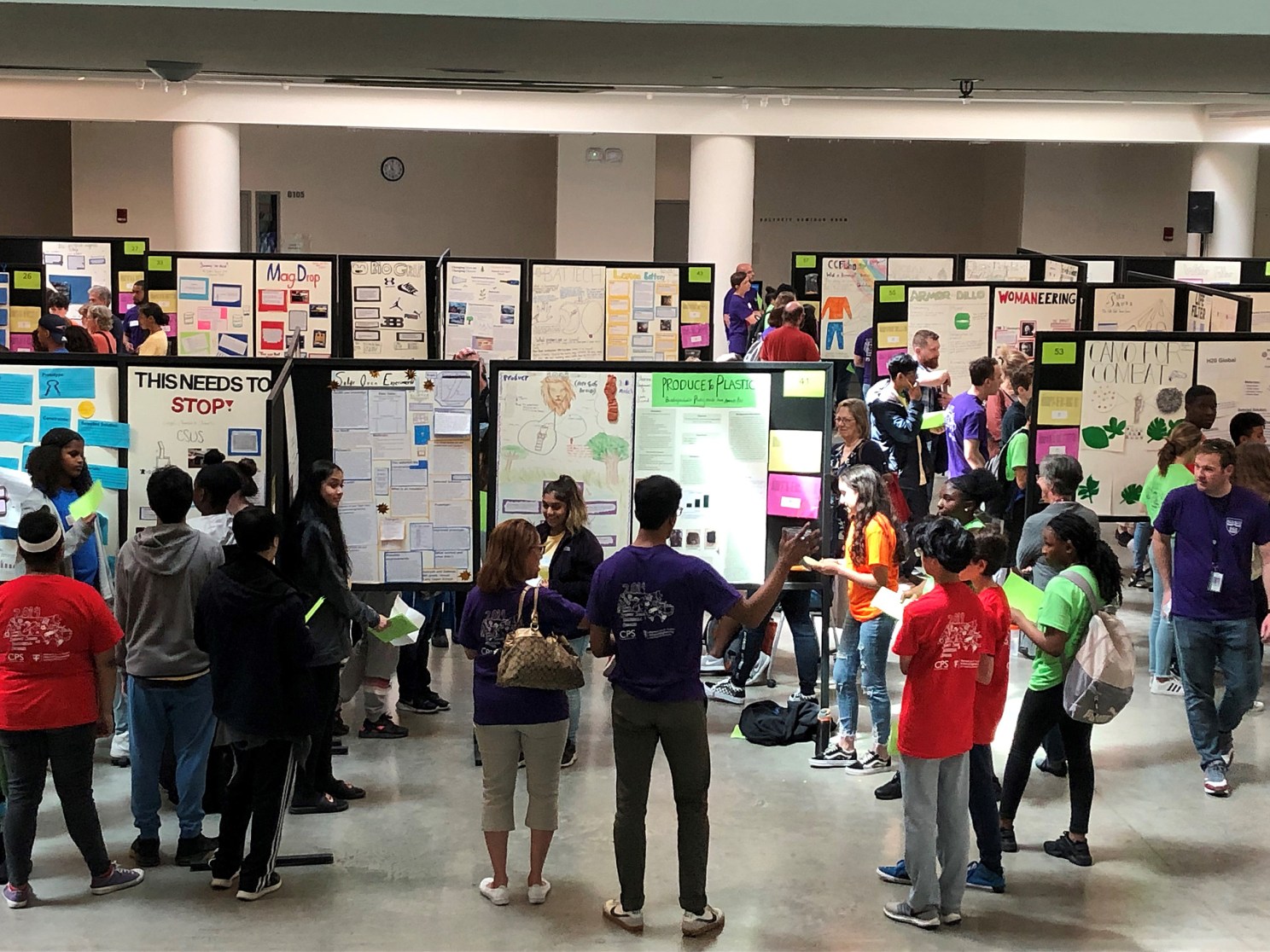Science and Engineering Showcase hosted in Cambridge

Cambridge Public School 8th graders present their projects at the ninth annual Science and Engineering Showcase at Harvard./Courtesy of SEAS
More than 400 Cambridge 8th graders recently convened on Harvard’s campus for the annual Science and Engineering Showcase sponsored by the Harvard John A. Paulson School of Engineering and Applied Sciences (SEAS).
Now in its ninth year, the event gives the Cambridge students the opportunity to present their science projects and findings to classmates, teachers, parents, and Harvard students and professors.
“This event is such a great example of how our city, our schools and our colleges and universities can work together to support our young people. The world needs your creativity, your inventiveness, your genius and your originality. Each new idea opens a door to the next,” said Cambridge Mayor Marc McGovern.
“We need problem solvers,” said Kenneth Salim, superintendent of Cambridge Public Schools. “We need people who are going to be creative. Who are going to be environmentalists, computer scientists, and researchers, as well as the politicians, the community leaders, and others — and having that understanding of science is going to make you a better leader and a better community member no matter what you decide to pursue.”
Projects varied, and included building a solar powered water filtration system, creating all-natural bug repellent, and examining the role of female engineers throughout history.
“The diversity of projects and the level of student engagement was inspiring to see — not only were students excited to present their own work, but were also eager to ask each other questions. This kind of curiosity and questioning is the foundation of a science literate society, and that energy was apparent throughout the day. My hope is that through this partnership and others at the high school level, we can continue to nurture that spark in each student,” said Kathryn Hollar, director of community programs and diversity outreach at SEAS.
Teachers say students learn about more than just the science – they’re learning how to present their findings, work in teams and answer questions – all skills that are equally as important as the scientific knowledge they’re gaining.
“I love seeing kids investigate and try to solve problems, and then sharing their projects across the district,” said Janet MacNeil, the JrK-12 science curriculum coordinator at Cambridge Public Schools. “Students looked at how to use science and engineering to solve problems. Our aim was to get them thinking about how to solve these relevant problems locally and across the world.”
The best part, MacNeil said, is that the students are the drivers of this learning. “They get to study something that they’re interested in, and by doing so, learn about the science and engineering model. About how to identity a problem. Ask questions. Analyze data. Communicate. These are all important life skills whether they’re going to be scientists or not,” MacNeil continued.
Paul Andrew, vice president of Harvard Public Affairs and Communications, encouraged students to take advantage of the various programs and offerings all across campus. “We want you to consider yourselves very much a part of our community, as we are so honored to be part of yours.”




